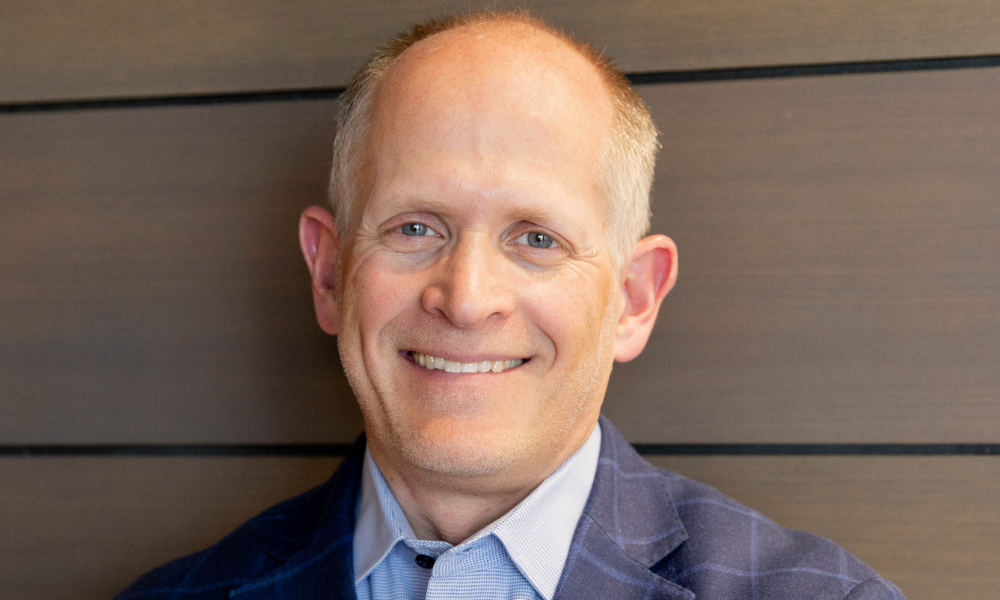If you thought a 4% spike in one year was bad, your memory is short…

Scott Phippen (pictured) was poised to embark on a career in international business as a young man. Instead, however, he began a 28-year career in mortgage – one that has seen him overcome plenty of turmoil along the way.
By happenstance, he became intrigued with mortgage as he helped a co-worker navigate along the homebuying process.
“During that process, I got to know the mortgage brokers,” he recalled during a telephone interview with Mortgage Professional America. “I was halfway through college at the time, I was 22 or so. I went to the broker and said ‘this looks interesting; maybe I could do this while I go to school’.”
Perseverance pays off
Told they didn’t hire anybody without experience, Phippen went back four more times before finally being allowed to learn at the brokerage shop, NVR Mortgage. Phippen recalled the unwillingness the broker had in training him. “I taught myself everything,” he said. After a stint there, he joined two small brokerages.
His finding the mortgage industry came at a time when he had quit his job for an exporter after learning the proprietor was engaged in unsavory business practices, he said. Before that job, Phippen had worked in cell phone sales. “I actually got my degree in Mandarin from the University of Utah because I thought I was going to be in into international business. But I liked the mortgage industry so much. After school, I was, like, ‘I’m going to stay in this industry’. I liked it.”
Today, he owns Infinity Mortgage, which opened in 1999 in a career that was sparked 28 years ago. He posted $30 million in volume across 60 units last year, and $52 million across 140 units in 2021.
“Size-wise, it’s me and five other loan officers and one processor.” That lean-and-mean approach is key to his success – a holdover from the Great Recession. “After going though the crash and basically grinding down to hardly anything, a lot of people think this could happen again. If it does, I want to make sure I can act quickly if it does. We didn’t have to do a lot of adjusting.”
He acknowledged having had a rough go of it last year amid inflation and mercurial mortgage rates. “We knew rates would go up at some point,” he said. “We didn’t know they’d go up 4% in one year. That was a little dramatic.”
Everything after the Great Recession is anticlimactic
Yet he suggested every other market shift that has emerged is anticlimactic after having survived the Great Recession. “It was really tough during that time,” he recalled. “There were programs that all went away, and a bunch of lenders were gone. It was really, really tough. Other brokers and friend who were brokers kind of tried to limit their expenses to as little as possible – even sharing office spaces and other things. It was definitely really, really tough. It caught everybody off guard.”
He recalled the sense of isolation from that time: “Brokers were vilified during the process too,” he said. “During that time, brokers were out there on their own trying to survive.”
With those memories still vivid, he is gratified being a member of the Association of Independent Mortgage Experts (AIME), Phippen said. “Like I mentioned, during the recession – the crash and many years after – brokers were on their own. The biggest thing that AIME has done is to provide a community for the brokers out there. And obviously, AIME has these events. Being able to be at those events and get to know other brokers – we learn from each other.”
He also likes the advocacy efforts AIME has recently unveiled – efforts that have affected him personally after being tapped as a so-called “state captain” for Utah. In that role, he helps ensure passage of legislation beneficial to the mortgage industry. “I helped, in Utah, get a veterans’ bill passed concerning property taxes and how those are counted at closing. So it helps the veteran qualify for more and not have to bring as much to closing.”
His snapshot of AIME: “We’re an organization now that has lots of momentum.”



